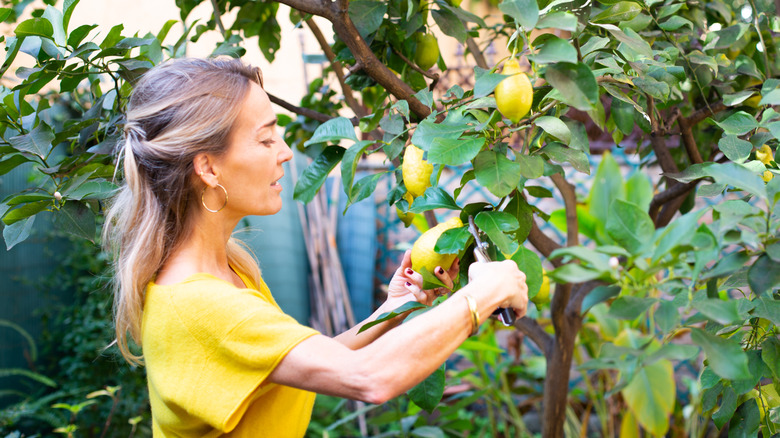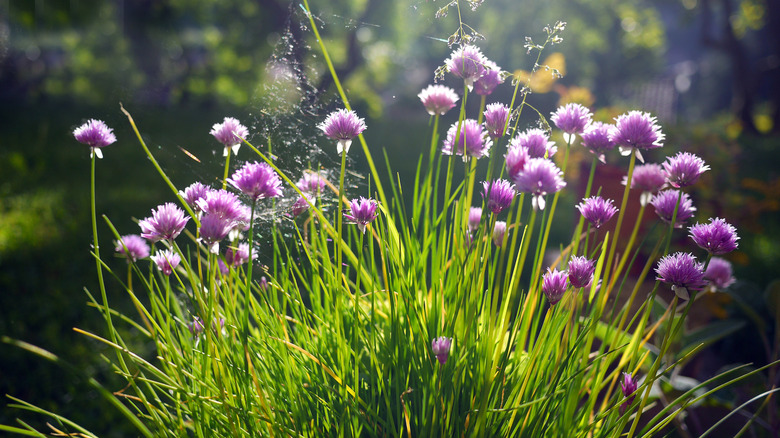Give Fruit Trees A Boost With An Easy-To-Grow Garden Herb You'll Love Having
Chives (Allium schoenoprasum) are probably best known as a sour cream companion in chips and dips. As it turns out, this herb is also a fabulous companion for lemon trees and other sweet-smelling fruit-bearing plants. For starters, these unfussy perennials crave similar growing conditions as citrus, apples, pears, and more. Sometimes called flowering onions, chives perform best in USDA hardiness zones 4 through 8. They like well-drained soil and visits from pollinators, which are wild about their purple flowers. The bees and butterflies that land on these blossoms will also pollinate your fruit trees' flowers, which can boost their yields. Plus, chives can deter Japanese beetles, aphids, and other insects that may harm your fruit trees' health. They're even known to keep deer and rabbits away from fruit plants while drawing wasps that feed on creepy crawly pests.
Since chives don't have strong preferences about soil texture or composition, they're quite easy to grow. They'll tolerate rocky, sandy, or clay-laden planting sites. As a bonus, they're happy in full sun or partial shade, which means you can plant them under a tree whose canopy casts a large shadow. Pests usually aren't an issue for these fragrant plants, and they'll make do if you forget to water them from time to time. In addition to being virtually disease free, they can ward off fungal diseases that ravage some types of fruit trees.
Growing chives to deter fruit tree diseases
Growing chives near your apple trees is a handy trick for helping them dodge apple scab, a fungal disease that infects their fruit and leaves. Affected trees usually develop olive green spots on their foliage, and their fruit can become so deformed that it's inedible. This common ailment also plagues pears and mountain ashes, so chives can be used to protect these plants as well. Chives can also deter black spot, a fungal problem that develops in many plants with fleshy foliage. It tends to strike during the wettest parts of springtime, causing leaves to develop dark, round patches. In general, chives are best at preventing fungal infections after three seasons of living in your garden. Growing them from seed is simple, and they'll come back in clumps year after year.
Chives can also promote fruit tree well-being when incorporated into your watering routine. Soak cut chives in boiling water and feed your fruit trees the liquid once it has cooled. It will have high levels of sulfur, which can help keep mildew away from your fruit trees. Try spraying this tea on gooseberries and other plants that are especially vulnerable to mildew, too. Plant-based DIY teas like this can also nourish your whole garden by giving it a nutrient boost. This can help your fruit trees be as healthy and bountiful as possible.

